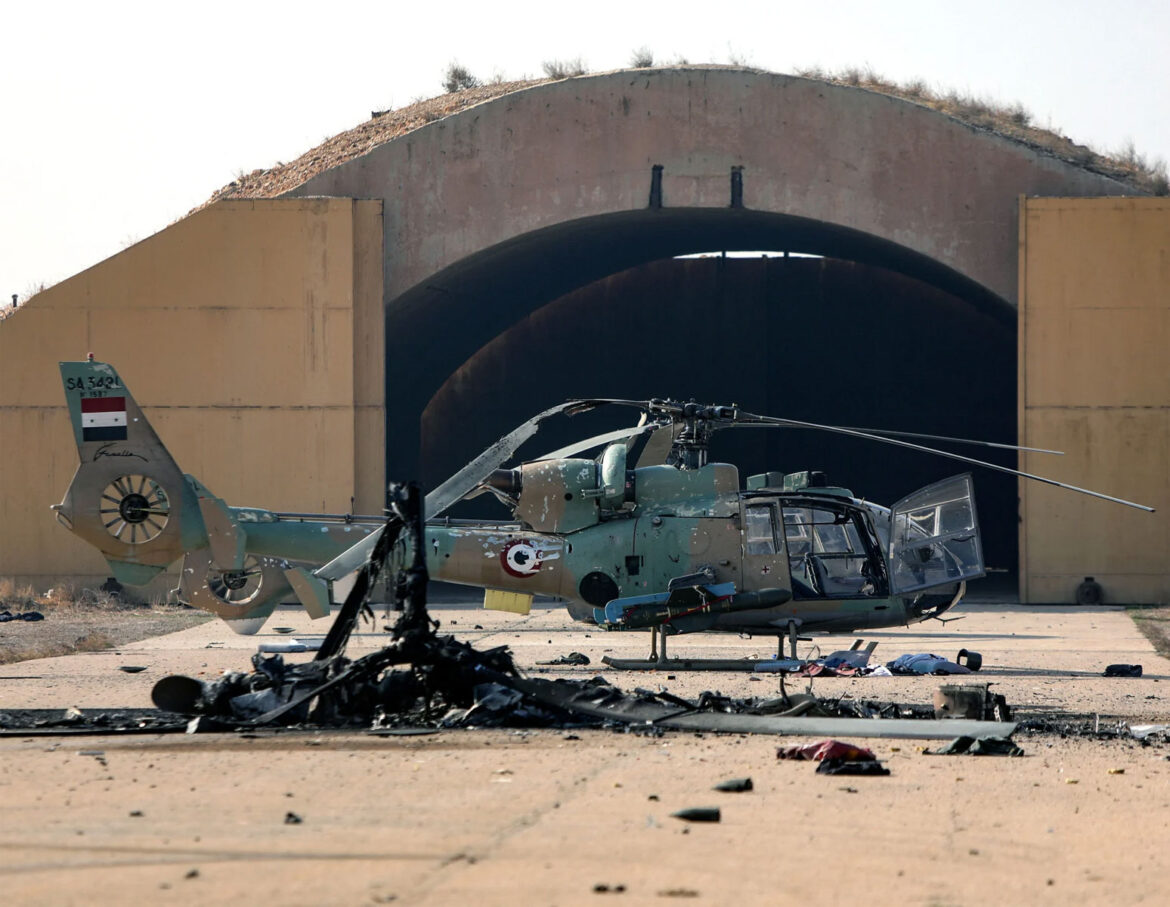Israel has claimed to have destroyed nearly 70 to 80 percent of Syria’s military capabilities in a recent large-scale military offensive. The operation comes amid ongoing instability following the ousting of former Syrian President Bashar al-Assad by rebel forces.
On Tuesday, the Israeli Defense Forces (IDF) confirmed to journalists that they had achieved their primary objective of neutralizing key Syrian military installations. The operation, dubbed “Operation Bashan Arrow”, takes its name from the ancient Biblical kingdom of Bashan, situated in what is now southern Syria and eastern Jordan. The term “Bashan” is derived from Hebrew, meaning “flat or level terrain.”
Targets and Strategic Gains
The Israeli military stated that its strikes targeted a wide array of Syrian military assets, including:
- Combat aircraft
- Naval systems
- Surface-to-surface missile sites
- Weapons production facilities
Among the critical sites reportedly destroyed were the Shayrat airbase in Homs and a military installation in northern Raqqa, according to the UK-based Syrian Observatory for Human Rights (SOHR). The strikes also targeted a chemical weapons production facility, raising significant concerns in the international community.
Annexation of Golan Heights and Mount Hermon
As part of its offensive, Israel has also capitalized on the chaos in Syria to seize the Golan Heights buffer zone, a region of strategic and symbolic importance. This area includes Mount Bashan (now known as Jabal Al-Arab or Jabal Al-Druze in southern Syria) and Mount Hermon, the highest peak in Syria.
Israeli Prime Minister Benjamin Netanyahu declared that the Golan Heights, annexed during the operation, would remain under Israeli control “for eternity.” However, this move constitutes a breach of the 1974 demilitarization agreement, which established the Golan Heights as a neutral buffer zone following the Yom Kippur War.
International Reaction
The offensive has drawn widespread condemnation from the international community. The United Nations and Arab nations, including Iran, Iraq, Qatar, and Saudi Arabia, have denounced Israel’s actions as a violation of Syrian sovereignty and international law.
Meanwhile, the opposition forces currently holding power in Syria have not issued an official statement. Reports suggest that the Israeli military is now operating just a few kilometers from Damascus, intensifying its presence on the city’s outskirts.
Escalating Tensions
The annexation of strategic areas and the destruction of critical Syrian military assets have significantly altered the balance of power in the region. The situation remains tense, with concerns over potential further escalation as international calls for restraint grow louder.



